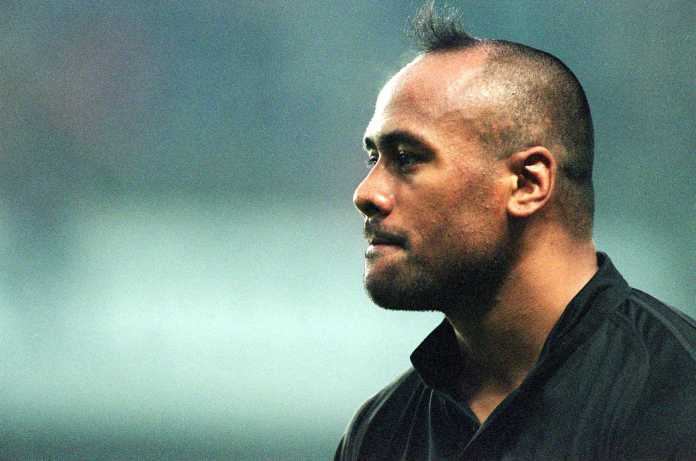
“I did talk to Munster at one stage but it just didn’t really fit into what we needed to do. In saying that, Munster has a great history and especially when you look back at the 1978 game, the result was a massive game for this country and this would have been a great place to have played,” admitted the 63 times capped New Zealander.
With that disappointment behind me, I asked Jonah where did the mentality of an All Black come from. The willingness, as seen on Sunday 24, never to know when they are beaten.
“It is just something that is born into the boys really. It’s trained into them too. You have to play for 80 minutes. Sunday was a classic example of playing right to the very, very end.
Opposition players, since 1884 have marvelled at the aura surrounding the New Zealand All Blacks. The heritage behind the great ‘jumper’ is not lost on players, even in today’s professional environment.
“Being an All Black is an honour and a privilege to play for the team. The jersey is not yours. You can listen to a lot of players talking about “the jersey is mine’ etceteras. The All Black jersey is never yours. You are only keeping it for someone else for a certain period of time. If you are the person who is the current keeper of that jersey, then you have certain standards to live up to each year. That is part and parcel of being an All Black. The other main thing is that, if you are not selected for a starting line up, you don’t hold any grudges. We don’t get down in the dumps about it. You just realise that the other person in the jersey is doing a better job. It is then your chance to support him and push him along. It is also your time to make sure when the following week comes along, you have a proper crack at getting the spot back”
At the age of 19 years and 45 days, Lomu became the youngest All Black test player as he debuted on the wing against France in 1994. Not everything went as smoothly as the young winger would have thought, losing his first two tests to Les Bleus.
“It was quite tough. The hardest thing for me was, my peers and the people that I looked up to for years, I was suddenly running onto the pitch with them. Only 12 months prior, I had been in the stands watching them play. Instead of listening to my own instincts, for my first two games I was listening to too many other people instead of sticking with what had gotten me picked in the first place for the All Blacks. That was a mistake. I had always played to my strengths. When I played the first two test matches, for some reason, I went into my shell. I started to listen to people who had never played in my position. I learned more from those two losses against France than I did out of any win that I had”.
At the end of 1996, Lomu was diagnosed with a rare and serious kidney disorder, nephrotic syndrome. An enforced break of almost nine years saw Lomu return to the field in 2005. The lengthy lay off allowed Lomu to gain a new perspective on life.
“I have tried to live my life with an open mind. You will never learn anything unless you are willing to look at all options on the table and be honest. When you get into any sport, rugby or not, you have to be brutally honest. How you see yourself. How you see when you can improve, what your weaknesses are. A lot of people do not believe that they have weaknesses. You have in your characteristics, flaws. The only person who is perfect is The Man upstairs. It’s not until you realise that playing rugby or going through life is a team effort, that is when you will get that you are not perfect and need support everyday.”
Over the many years of Lomu’s rugby career, once which ended in 2007, people have wondered who are the best players he has played with and against. The answers give an insight into the All Black mentality while also showing that Lomu has been learning about rugby from capo one to 63.
“The way I see the All Blacks is as a unit. I never see one player over another. There have only been 1130 All Blacks since 1884, (Lomu being 941 in that list) which is not a lot taking into consideration the years of All Black history. For me, anyone that pulls on that jersey is a great All Black. Purely for the reasons that I know the sacrifices they have made to get that chance to wear the jersey. The pressure put on you is immense too. For me, the best ever All Black is the one who has had the chance to pull on the famous black jersey.”
“My hardest opponent? – That’s easy. Hands down, Émile Ntamack. He was the hardest player I have ever played against. Purely because I learned more from the two losses I had against him than any win I ever had. He gave me a reality check in the first game and then he absolutely schooled me in the second game. For me, he set the tone and standard I knew I needed to get to, to be an international rugby player like those guys. He gave me that drive and that enthusiasm for the game.”
After a colourful 38 years of battling International defences, dealing with kidney transplants and being a father to two boys, Lomu would be forgiven if he wanted to go back at some point and change a few things. Does the big man have any regrets about anything?
“No mate. Not one. None at all in any shape or form.”
Interview courtesy of CWH Promotions











